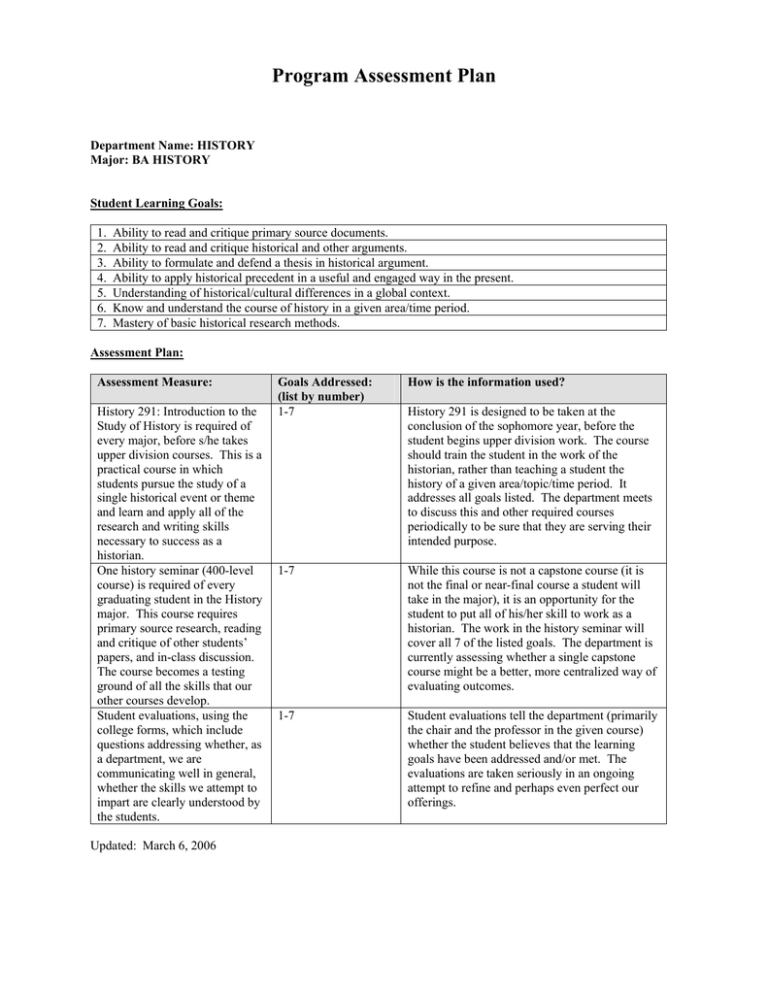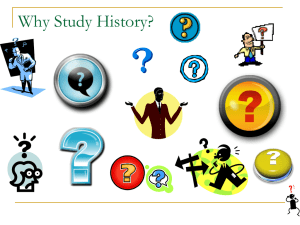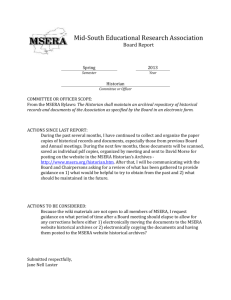Program Assessment Plan
advertisement

Program Assessment Plan Department Name: HISTORY Major: BA HISTORY Student Learning Goals: 1. 2. 3. 4. 5. 6. 7. Ability to read and critique primary source documents. Ability to read and critique historical and other arguments. Ability to formulate and defend a thesis in historical argument. Ability to apply historical precedent in a useful and engaged way in the present. Understanding of historical/cultural differences in a global context. Know and understand the course of history in a given area/time period. Mastery of basic historical research methods. Assessment Plan: Assessment Measure: History 291: Introduction to the Study of History is required of every major, before s/he takes upper division courses. This is a practical course in which students pursue the study of a single historical event or theme and learn and apply all of the research and writing skills necessary to success as a historian. One history seminar (400-level course) is required of every graduating student in the History major. This course requires primary source research, reading and critique of other students’ papers, and in-class discussion. The course becomes a testing ground of all the skills that our other courses develop. Student evaluations, using the college forms, which include questions addressing whether, as a department, we are communicating well in general, whether the skills we attempt to impart are clearly understood by the students. Updated: March 6, 2006 Goals Addressed: (list by number) 1-7 How is the information used? History 291 is designed to be taken at the conclusion of the sophomore year, before the student begins upper division work. The course should train the student in the work of the historian, rather than teaching a student the history of a given area/topic/time period. It addresses all goals listed. The department meets to discuss this and other required courses periodically to be sure that they are serving their intended purpose. 1-7 While this course is not a capstone course (it is not the final or near-final course a student will take in the major), it is an opportunity for the student to put all of his/her skill to work as a historian. The work in the history seminar will cover all 7 of the listed goals. The department is currently assessing whether a single capstone course might be a better, more centralized way of evaluating outcomes. 1-7 Student evaluations tell the department (primarily the chair and the professor in the given course) whether the student believes that the learning goals have been addressed and/or met. The evaluations are taken seriously in an ongoing attempt to refine and perhaps even perfect our offerings.



